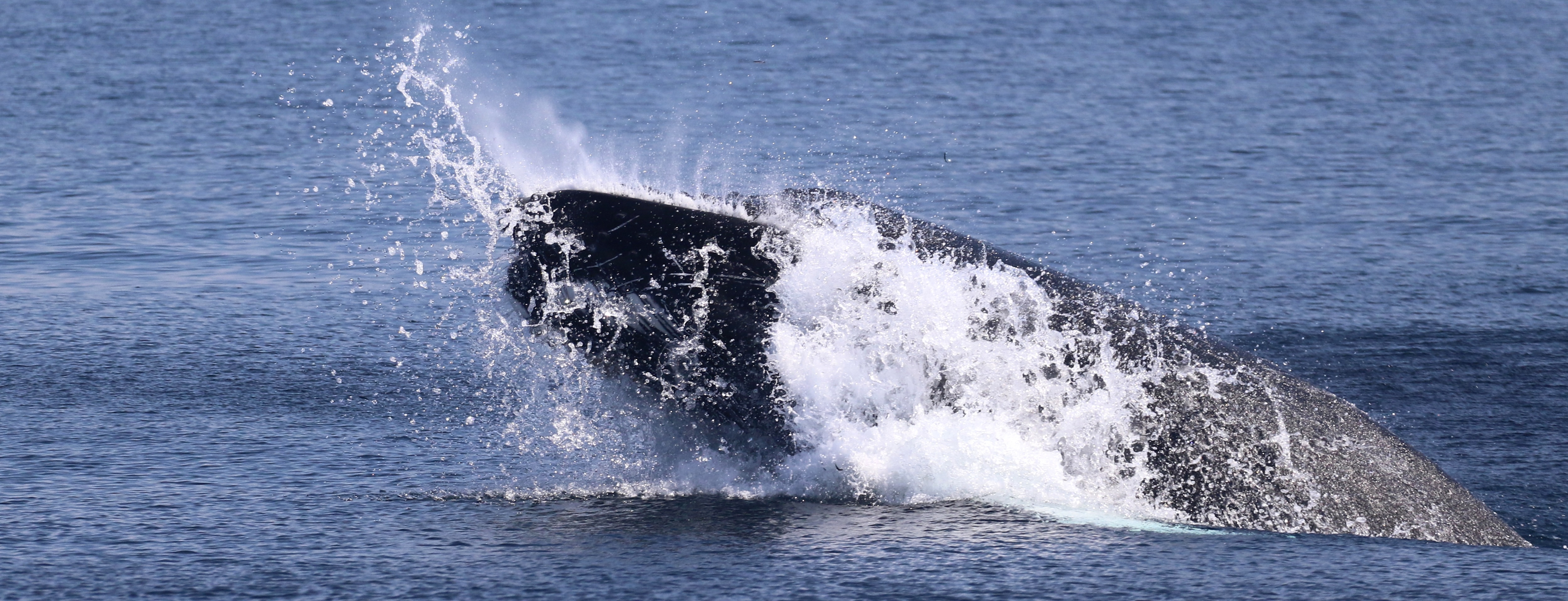

Cornwall Climate Catch Ups: Hannah Wilson
Hannah Wilson, co-founder of Marine Discovery
Marine Discovery provides sailing wildlife watching adventures from Penzance and has been a huge supporter of our work over the years. In this blog we hear from co-founder, Hannah, about the surprising changes that she is seeing as our waters warm, as well as how the business is limits its environmental footprint while helping to enthuse and educate the public about our marine life.
Is climate change really impacting our Cornish seas? What changes have you observed over the years?
Though the social media warriors try to pretend that climate change isn’t happening, the effects that increasing water temperatures are having on our immediate marine environment are undeniable.
Unfortunately, however, climate science and oceanography can be hard to explain in a simple way – and often people just don’t want to hear. Small increments of temperature increase don’t grab the public’s attention and are shrugged off.
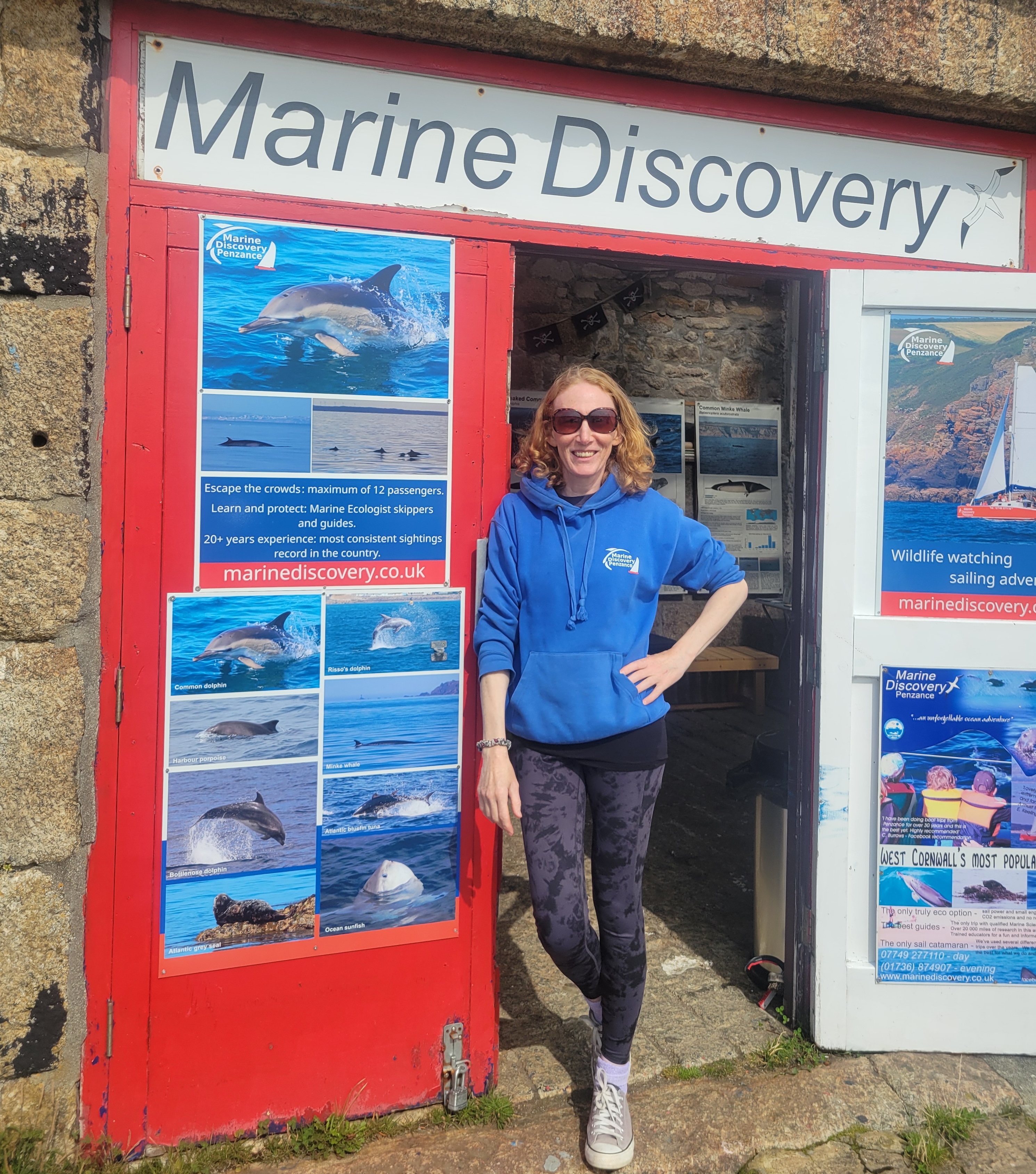
Since 2009, we have been collecting effort-based data on all the species we encounter, and though some variation is inevitable due to normal fluctuations, if you add warming temperatures into the mix, we are now seeing changes happening disconcertingly fast.
Basking shark sightings have sharply declined in the last fifteen years, even though our Cornish waters were always considered a “hot spot”. The plankton structure has completely changed, which means the sharks’ favoured prey is no longer flourishing here.
In 2006-10 we’d sometimes see more than 20 basking sharks in a single two-hour trip – these days we haven’t seen a single one since 2021.
We still get many people phoning up who want to know when is the best time for basking sharks, and they’re surprised when I tell them it’s really unlikely. Ocean sunfish sightings too have declined.
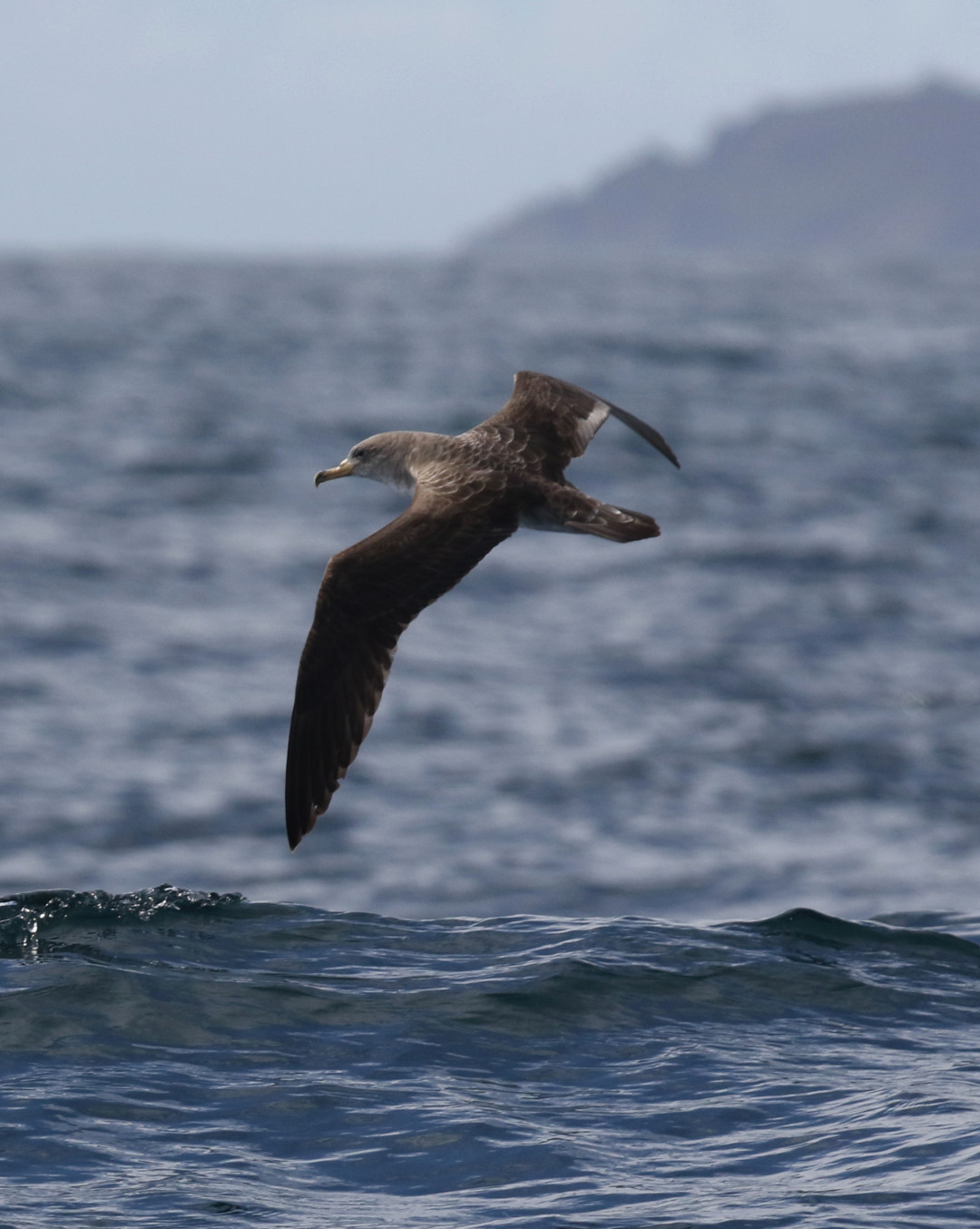
We have also seen unprecedented numbers of some seabirds too. A few Cory’s shearwaters a year used to be a normal count – last year we saw flocks of hundreds. Out in the Scillies, they were estimating thousands. They are frequently found hunting near schools of tuna, so it seems likely they have similar prey. Risso’s dolphins may also be turning up in much greater numbers because of warming seas – their favoured prey here is cuttlefish, which spawn more successfully in warmer waters.
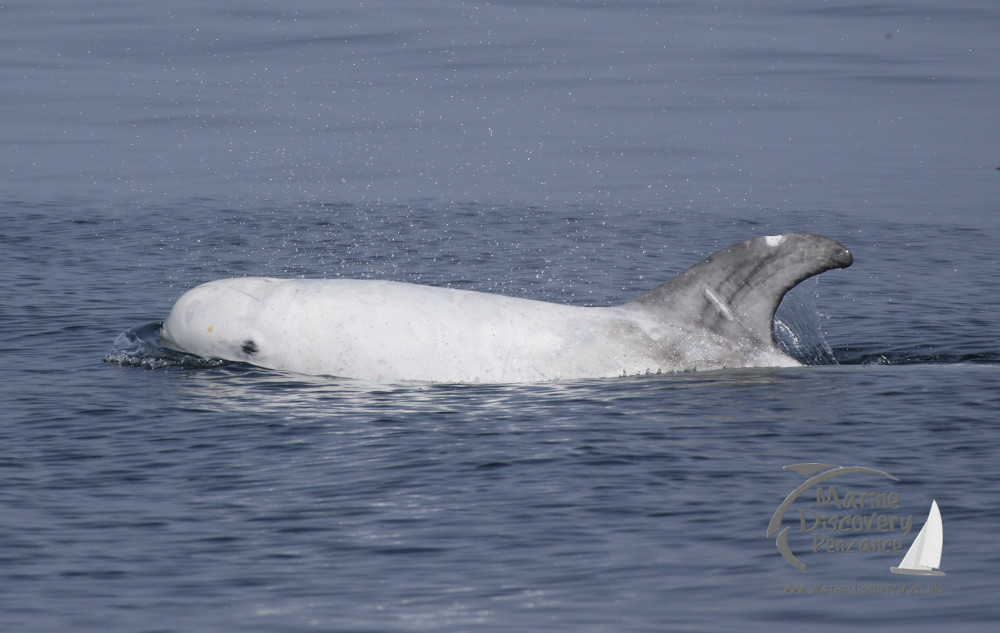
So does this mean our warming waters are good news?
People love a good news story and many, many people are invested in the “climate change is a myth” narrative.
Also, of course, finding wildlife easily on our trips is great for our passengers and business.
However, all these animals are not suddenly filling our waters because centuries of over exploitation and pollution have been reversed. For example, the humpback whales now seen around Cornwall, particularly in the winter, are here for complex reasons that may not be as positive as you’d first think.
All these animals are coming from elsewhere because our inshore waters are more favourable for some reason. If that’s the case, and given that we know our coasts are polluted, overfished, industrialised and full of leisure activity, what the hell is it like where they have come from?
While loving the encounters we are able to share with our passengers, and being able to show them the creatures that deserve to survive and flourish just as much as we humans do, the changes we are witnessing are a big concern for me.
Don’t your wildlife watching boat trips also harm the marine environment?
Since we started running Marine Discovery in 2005, we have always been acutely aware of the potential impact of our tours. Our first vessel “Spearfish” was a Humber RIB which had relatively small twin 80 hp Yamaha outboard engines. Feeding them with enough petrol to fuel a seven-hour day on the water was not only expensive, but we were always guiltily aware of the emissions and the noise that they produced, as well as the speed.
In 2007, we tried to do something about it. We didn’t yet have the confidence to think right outside the box and bought another RIB when we outgrew “Spearfish”. This one was a Halmatic diesel RIB with a jet drive. The jet drive was less acoustically polluting, and we also had grand ideas of using biofuel to power the diesel engine. However, while this was theoretically possible, in practice it was not. So again, we were spending large amounts of money on buying fuel for a large powerful engine, oil to maintain it, and engineers to service it. We told ourselves that diesel produces fewer carbon emissions than petrol, and weren’t aware/tried to ignore of the issues around breathing in particulates and the potential damage to our hearing.
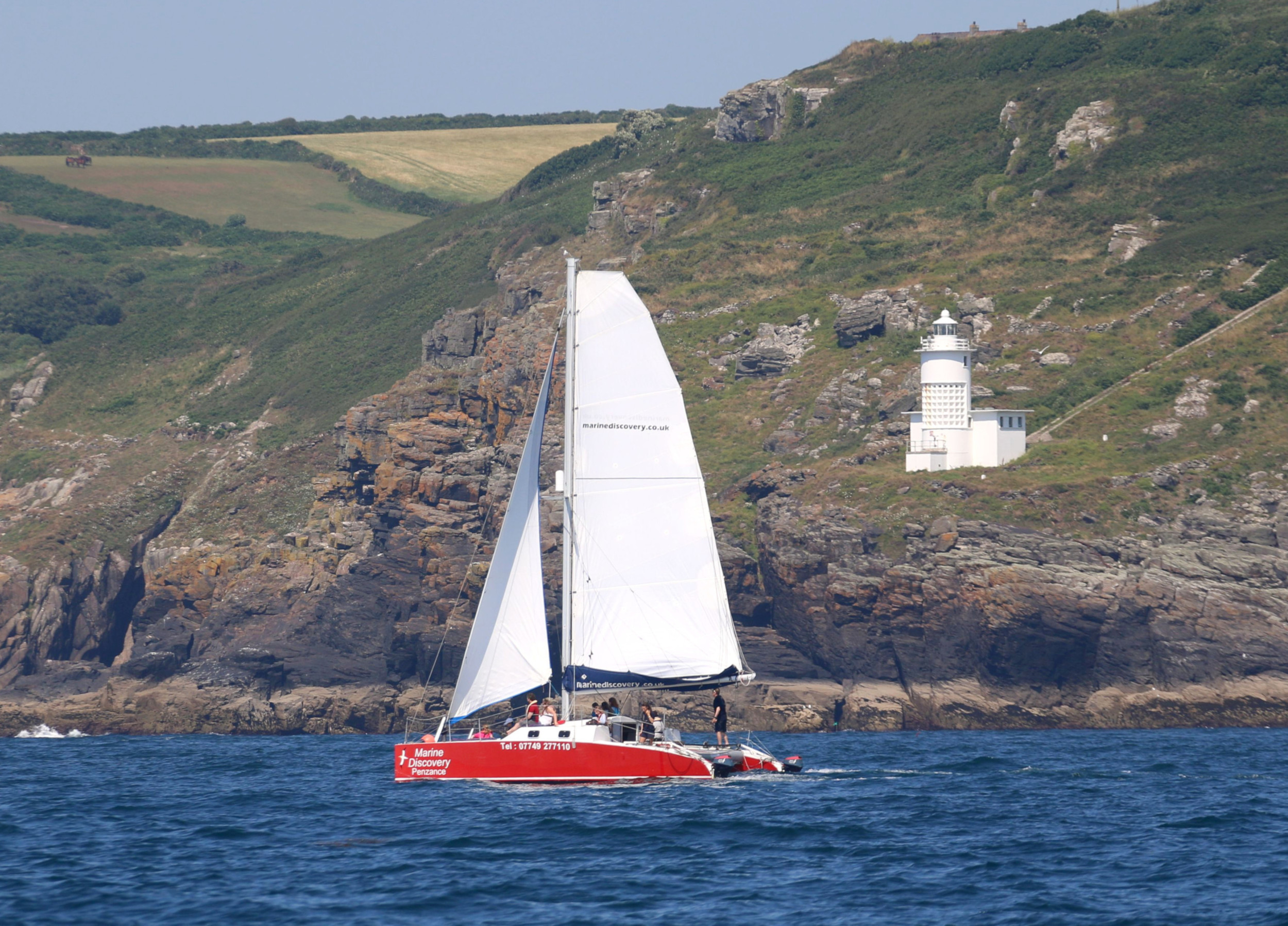
In 2009 we started thinking about a sailing boat. Buying our current vessel, the catamaran “Shearwater II”, was by far the best decision we have ever made. While we do use outboards on it, these are 20hp each and use minimal fuel, even on the days when there is no wind. We hoist the sails and run the trips using the power of the breeze whenever possible, and in today’s unstable climate, those windy days are becoming more and more frequent.
Knowing what we all know now, I find it hard to believe that there are still sea safari trips promoting the size of their engines and the speed of their vessels as a marketing tool.
We prefer to emphasise the fact that we are able to visit the ocean realm in peace and quiet, without disturbing its inhabitants, and with far less risk of any kind of collision. Most importantly, we have realised that sailing along at 8 or 9 knots gives us far more of a chance of spotting wildlife than tearing along at 25-30 knots.
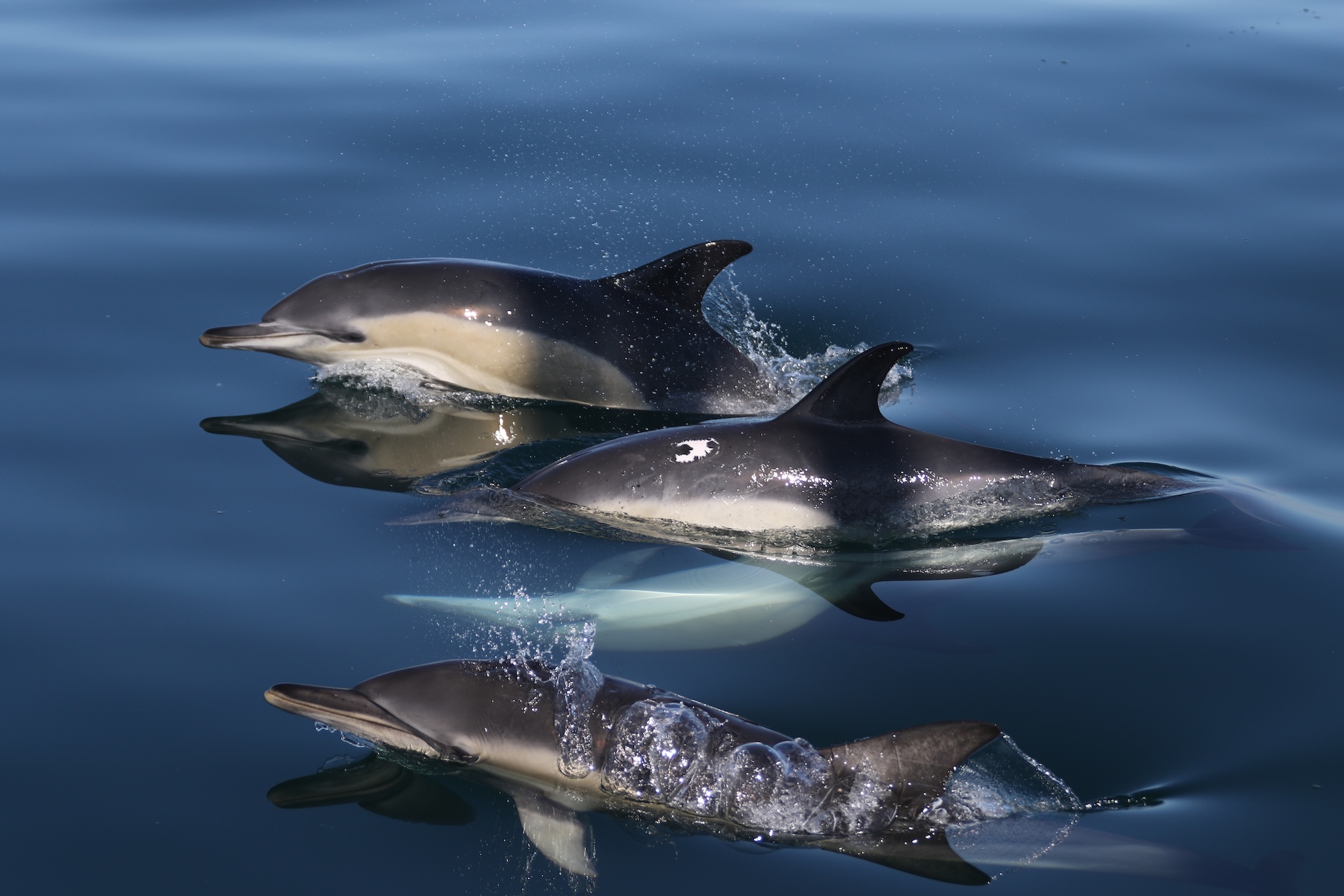
When dolphins are bowriding our catamaran, we are able to hear them clicking and whistling, which simply wouldn’t be possible if we had noisy engines roaring. We hear the whoosh of a whale’s blow, the thump of a diving gannet, the snort of a grumpy seal.
Sailing is better for our business, better for our bank balance, better for our health and – most importantly – better for the wildlife and the environment.
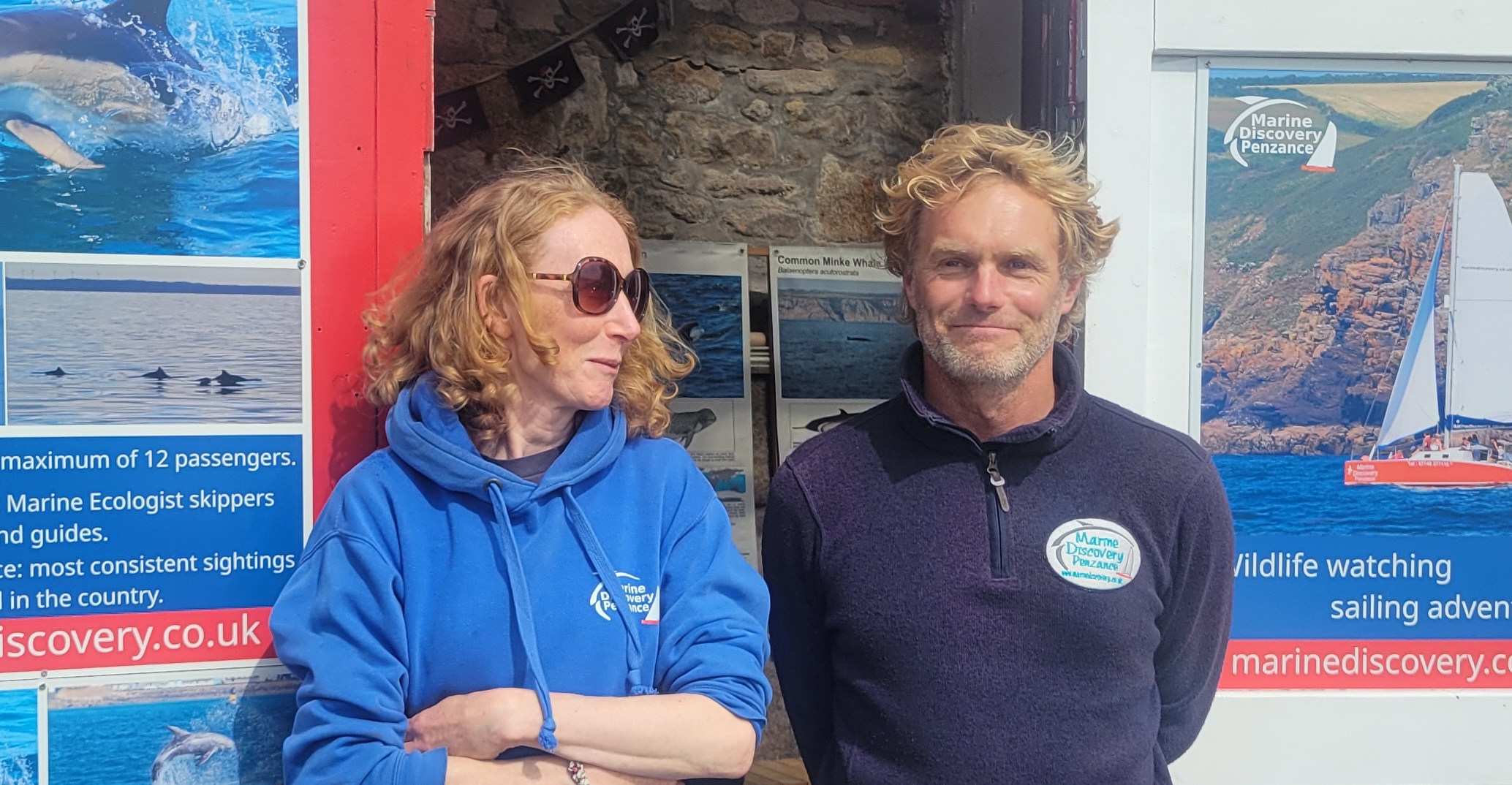
_________________________________________________
Find out more about Marine Discovery's wildlife watching sail tours at www.marinediscovery.co.uk.